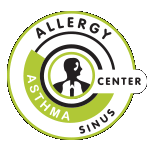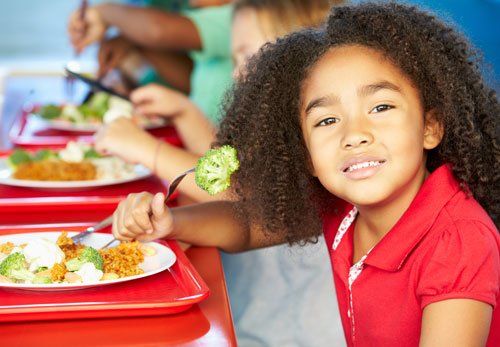YOUR CHILD'S FOOD ALLERGIES
Wondering where to start when it comes to food allergies and your child? Let us help!
Introducing Solid Foods:
Follow your pediatrician’s recommendations with how and when to start. Usually it is suggested to begin with grains, then on to green and yellow vegetables, and fruits. New recommendations suggest introducing scrambled eggs, dairy products (such as soft cheese and certain yogurts), and nut butters in the first year of life. Getting these foods into the diet early may help prevent the development of a food allergy. These foods should be introduced at home starting with one small bite at first while monitoring for 30 minutes. Increase the amount given over the next three to four days. If your child has moderate to severe eczema, or a known food allergy, he or she should be seen by an allergist before introducing any of the “Big 8” food allergens.
If your child does have a reaction, the first common symptom to look for is hives, but other symptoms such as swelling of the lips, coughing, wheezing, vomiting or diarrhea are possible. Most reactions occur fairly immediately after eating, within 30 minutes, but they can occur up to two hours afterwards. So, if you see anything out of the ordinary while feeding your child, stop that food in the diet and contact your pediatrician.
At School:
Be sure to setup a meeting before the start of school or upon a food allergy diagnosis with the school nurse, teacher, and potentially the principal to discuss your child’s food allergies and your concerns. Most schools have a protocol for managing food allergies that can be tailored for a student’s individual need. There should also be a Food Allergy Action Plan in place that details how to manage an accidental exposure should it occur. This plan should include your emergency contact information as well. Remember that your child might be exposed to an allergen during a field trip, class project or class party, so discuss with the teacher how these activities will be handled. It’s also important to teach your child how to talk about symptoms she or he might experience during an allergic reaction and what to do if a reaction occurs. Help your child get in the habit of asking if the food allergen is in any food being offered by an adult or other child. You may also want to connect with parents who have children with food allergies who attend the same school. Feedback on their experiences with the school will help!
Special Occasions:
Whether it’s a birthday party, a social function or a holiday, it’s hard to keep your child safe from all possible food contamination. Even family members may not know anything about your child’s allergy. That’s why it’s important to be as detailed as possible about what might happen during an allergic reaction and the treatment that may be needed. Be vigilant and don’t worry about asking questions about the food being served. It may also be easiest to bring your own food until everyone is onboard and aware.
We can help!
Defining and managing your child’s food allergies can seem like a daunting task. That’s where we can help! If you’re wondering about a possible food allergy or looking for help in managing an existing one, schedule an appointment with our food allergy experts. We can help determine your child’s risks and guide you in navigating food labels, restaurants, gatherings and more. It’s our goal at The Allergy, Asthma & Sinus Center to help you and your child feel safe, cared for and well prepared for any situation.
TRUST THE EXPERTS
All physicians board-certified in allergy and immunology

All Rights Reserved | The Allergy, Asthma & Sinus Center



